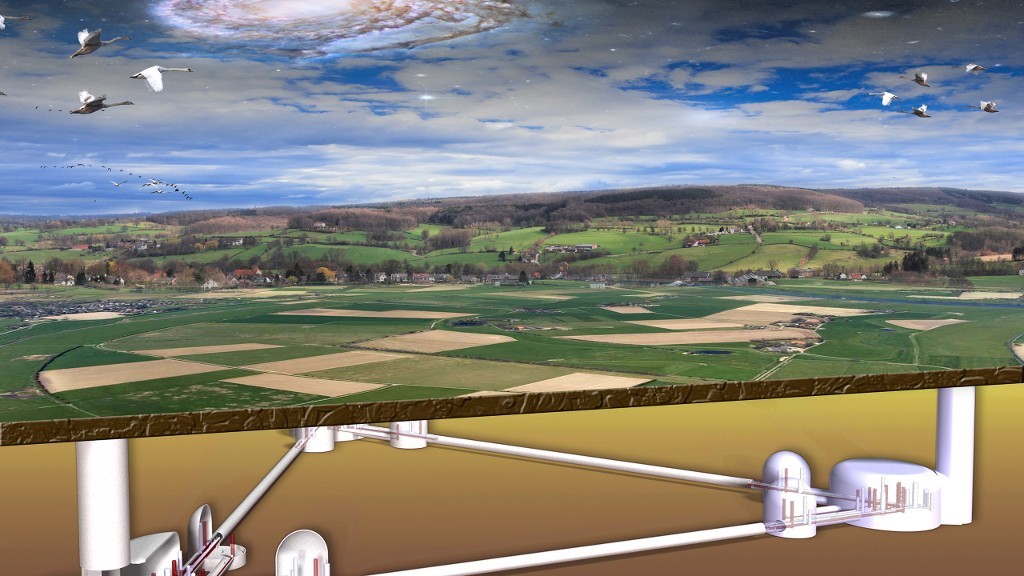The Council of State has decided against the construction of six windmills in the Liège municipality of Dalhem to safeguard the Meuse-Rhine Euregion's chances of hosting the Einstein Telescope.
Flemish ministers Zuhal Demir and Matthias Diependaele, who had contested the construction permit, termed the Council's move a "wise decision".
The Meuse-Rhine area, which includes Belgian Limburg, Dutch Limburg and Germany, is one of the regions in the running to host the Einstein Telescope, an underground detector of gravitational waves that needs to be shielded from any vibrations in the ground within a radius of 10km.
In 2025, the EU will decide whether it will be built in the Meuse-Rhine area or Sardinia.
The telescope, which should create over 1,500 jobs, will include three tunnels built a few hundred metres underground, each of them 10kms long. Scientists think these tunnels will enable them to learn more about the formation of the Earth and the Universe.
For a region to have a chance to host the project, the ground there needs to be stable. It is precisely this stability that could be jeopardised by the construction of massive windmills close to the telescope.
"The windmill project was a serious threat to the coming of the Einstein Telescope to the Meuse-Rhin area," Ms. Demir said. "The expansion of land-based windmills is indispensable to the energy transition and the will to become more independent of Russian gas, but with that decision, the economy and prosperity of the people of Limburg risk paying the price."
"That's why the Flemish government made an appeal to the Council of State," she explained. "Fortunately it was successful."

